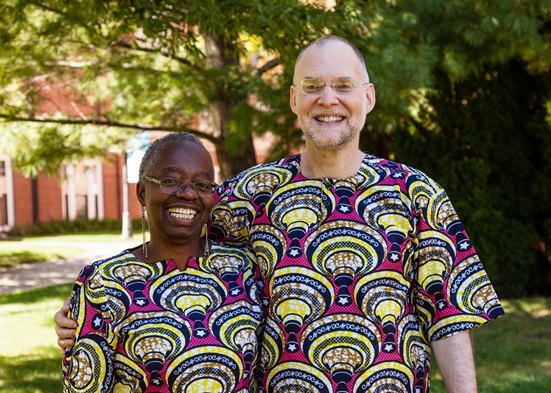Listening for God’s Voice and Heart in Scripture: A conversation with Craig S. Keener

Drs. Médine and Craig Keener share their love story in Impossible Love. Read “Our God is With Us through It All: Interview with Craig and Médine Keener about Impossible Love when they spoke with PneumaReview.com.
Jesus told his disciples that He had more things to tell them than they could bear at the moment (John 16:12). But He would send them the Spirit of truth who would continue to share with them the message He would hear from Jesus (16:13), just as Jesus shared whatever He heard from His Father (15:15). This promise wasn’t just for the disciples who heard Him that night; the gift of the Spirit is for all believers who are born from the Spirit (John 3:5; 7:37-39; 1 John 2:27; 3:24; 4:13). We can all expect to hear from the Spirit, and surely when we are reading the message that He authored in Scripture. So we can approach that task with faith. But just as God often surprised His people in the Bible, we can count on being surprised some time. God speaks in different ways to me than He speaks to my wife, but we each hear Him, and so we also learn from each other. It’s just important that we stay in touch with the God we read about in Scripture and His ways, because obviously not everybody who tells us, “God told me,” or, “The Bible says,” is speaking that accurately.
PneumaReview.com: One theological viewpoint that you touch on in Spirit Hermeneutics is cessationism. Why do you say that cessationism is a post-biblical doctrine?
Craig S. Keener: The Bible nowhere teaches that spiritual gifts will cease. (The one text traditionally cited to support that, 1 Cor 13:8-10, in context actually indicates that the gifts are expected to continue until we see Christ face to face at his return!) Nor does the Bible offer any precedent for dividing its lists of gifts into those that will cease and those that will continue. The idea that the gifts will cease is a postbiblical idea. Ironically, the concern about gifts continuing after the closing of the canon is the fear that some might use prophecy to propound postbiblical doctrine. This is not, in my opinion, a legitimate use of the gift of prophecy. Yet cessationism is a postbiblical doctrine. In other words, it commits the very error it was designed to keep others from committing.
PneumaReview.com: Also, related to the ministry of the Holy Spirit you say that many Christians, including Pentecostals and charismatics, are doctrinal continuationists but practical cessationists. Please explain what you mean and why you think that this is so.

“God’s gifts are good.” —Craig S. Keener
Read Wolfgang Vondey’s review of Gift & Giver: The Holy Spirit for Today.
Craig S. Keener: We should welcome all the gifts that the Lord places in Christ’s body, not just the gifts that some other churches have discarded. (While a body that amputates valuable members is not whole, neither is a collection of amputated members. God’s gifts are good, whether those gifts are spectacular in our eyes or not.) But even regarding gifts traditionally associated with Pentecostals and charismatics, many of our churches rarely experience healing, prophecy, and so forth. When the Sanhedrin tried to shut down signs in the name of Jesus, the believers prayed in Acts 4: “And now, Lord, look at their threats, and grant to your servants to speak your word with all boldness, while you stretch out your hand to heal, and signs and wonders are performed through the name of your holy servant Jesus.” Jesus encouraged his disciples to pray for the Holy Spirit (Luke 11:13). Maybe many of our churches need to call on the Lord with renewed confidence to stir us afresh. Prophecies, healings and the like are not the only signs of the Spirit’s activity by any means. But if we are more concerned about respectability than celebrating God’s gifts, something is wrong. Maybe the primary place for this belongs in smaller groups, which is mostly what the early churches were, except for the Jerusalem megachurch that had access to meet in the temple. The house churches were groups of maybe 20-50 people, but each brought gifts, and far from prophecy scaring off nonbelieving visitors, it was meant to reveal the secrets of their hearts and bring them to the faith. I used to see that in action at an Ohio church named High Mill back around 1977-78 (before I went away to college), where it regularly brought people to faith. Well, I am spending too much of my space on this one question. We don’t all need all the gifts, but we need to welcome the gifts more.
PneumaReview.com: In the book you have a section about Global Readings. Please tell our readers what Global Readings are and how they can be helpful in the interpretation of Scripture.
We want to submit our lives to be transformed by Scripture’s message. Otherwise we’re like someone who sees their face in a mirror and goes off forgetting what they look like.
Category: Biblical Studies, Winter 2017


